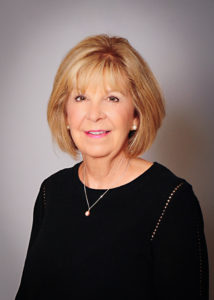
Are you struggling to cope with the death of a loved one or close friend in the last year? Does it seem the struggle is longer and harder than you think it should be? One big reason is that you are grieving in a severely altered world —the world of a pandemic. The grief from the death of a loved one is recognized as one of the most intense emotional experiences you encounter in life. Nothing prepares you for the depth of pain and emotion. And then COVID came along and made everything even more complicated. There are several reasons grieving in a pandemic more difficult.
First is the environment that provides the backdrop for your grief. COVID created an environment of anxiety, fear, uncertainty, isolation and so much sadness. Daily reminders in the media of large numbers of people dying create a pervasive sense of sadness and loss. Additionally, we are all sad about the disappearance of our normal life and daily routines that allowed us to see others, get out of the house and interact with a world that was familiar. Your grief occurred amid the uncertainty about when or if that familiar world will ever return. The realization of just how vulnerable our world is also creates anxiety and sadness. Because of the pandemic “lockdown,” all this occurred while you were isolated from friends and family who might normally provide comfort.
Your experience with the dying process was also altered. Whether the death was a result of COVID or not, families were not allowed to be present with those who were dying. There were no final conversations, no goodbye’s, no comforting hugs, and holding the hands of those we loved as they transitioned out of this life. Instead, death occurred in isolation, leaving the survivors with many questions about what the final hours were like and with intense guilt about not being able to be present and provide comfort. If the death occurred suddenly and unexpectedly, you received that news in isolation and were not able to gather friends and family to help absorb the shock in ways that would normally have occurred.
Most importantly, when a death occurred in your own circle of friends and family, you were faced with completely altered ways of dealing with the loss. Normally you have traditions and certain accepted conditions that assist you in dealing with your grief and provide comfort. Sadly, COVID robbed us of these things, leaving us with intensified grief that tends to last much longer.
The first of these traditions that were altered is that you were not allowed to have the normal funeral or memorial services that provide comfort. No visitations, which normally provide that first “step” back into the world following the death and allow friends to offer comfort and show support. With funeral attendance limited to 10 or fewer, difficult decisions had to be made about who could attend, which always meant leaving someone out. The small group and shortened service left survivors with a feeling of emptiness, with the feeling that you simply were not able to adequately honor the memory of your loved one and their importance in your life. You did not get the comfort that comes from seeing friends attend as a way of honoring the memory of your loved one and showing how much that person meant to others. Instead, you may have walked away from the services feeling like you failed to appropriately honor your loved ones, through no fault of your own, but due to pandemic limitations.
Following the service, friends were not able to be present to help you through the difficult days, weeks, and months that follow a loss. Everyone was homebound, leaving the bereaved to deal with their intense sadness in isolation. For those who traditionally rely on their faith community to offer comfort, religious institutions were not meeting, taking away yet another source of solace. At the very time, we all needed the presence of others, we were left alone. We were not created to live in isolation.
Finally, there is the difficulty of adjusting to a changed life. This task of grief has always been hard, as the bereaved struggle to find new ways of living life with daily reminders of the routines that included the deceased. In the midst of a pandemic, this task has been almost impossible because so much in our lives and the world surrounding us has been changed that there has been very little stability to hold onto for a foundation as you learn to adjust. The entire world has been dramatically altered, leaving all of us feeling uncertain and off-balance at the very time you need something to hold onto. Adjusting to a “new normal” when everything in the world feels unfamiliar is almost impossible.
But the situation is not hopeless. We are slowly returning to some almost normal routines. Stores are open, people are getting out more, and houses of faith have reopened. Hope is on the horizon for a life that allows you to interact with others.
If your loved one died early in the pandemic, you may have to remind others that you have experienced a terrible loss and need the comforting presence of others. Our sense of time is distorted from both loss and the pandemic, so others may be moving forward in their own worlds and forgetting what happened in the lives of friends. Don’t be shy about reminding them.
If you were not able to have a meaningful memorial service, you can still have one. Some are choosing to invite others to a service on the anniversary date of the death. Or you might consider hosting a gathering to share stories and memories of the deceased. In a world where we have not been able to call upon normal traditions, you can be creative. Just do something to address your need and help minimize the isolation. You will find that others appreciate the opportunity to appropriately acknowledge the importance of your loved one.
Finally, give yourself grace. You have been through a terrible loss at one of the worst times in history. No one was prepared for this, and everyone has struggled. Each step you have taken is progress. Give yourself credit for the strength it has taken to get this far, and know that you don’t have to grieve alone.


 Author: Dr. Karen S. Scott
Author: Dr. Karen S. Scott